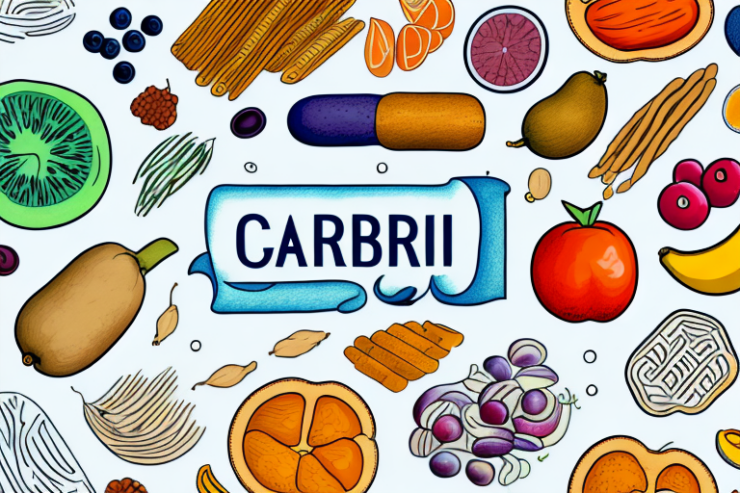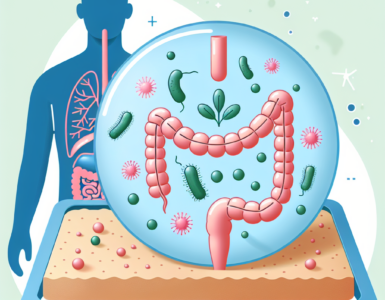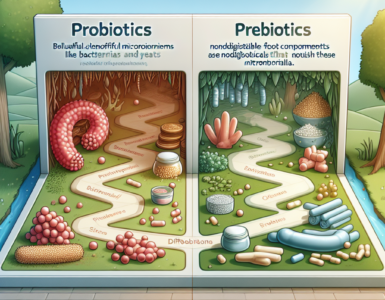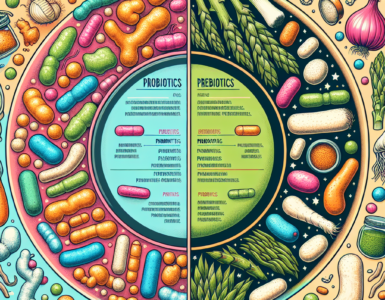It’s no secret that carbohydrates often receive a bad reputation in the world of nutrition, with many diets labeling them as the enemy. However, when consumed in moderation and as part of a balanced diet, carbohydrates can offer numerous benefits to the body. In this article, we’ll take a closer look at the importance of carbohydrates, debunk common myths, and explore the different types to help you choose the best options for your diet.
Understanding Carbohydrates
What are Carbohydrates?
Carbohydrates are an essential macronutrient that provides energy to the body. They are found in a variety of foods, including grains, fruits, vegetables, and dairy products. Carbohydrates are composed of three main components: fiber, starch, and sugar.
Fiber is a type of carbohydrate that the body cannot digest. However, it plays a crucial role in maintaining digestive health by promoting bowel regularity and preventing constipation. Foods high in fiber include whole grains, fruits, and vegetables.
Starch is a type of carbohydrate that the body breaks down into glucose, which is used for energy. Foods high in starch include potatoes, rice, and bread.
Sugar is a type of carbohydrate that provides the body with a quick burst of energy. However, consuming too much sugar can lead to health problems such as obesity, diabetes, and heart disease. Foods high in sugar include candy, soda, and baked goods.
Types of Carbohydrates: Simple vs Complex
Carbohydrates can be divided into two categories: simple and complex. Simple carbohydrates, also known as sugars, are made up of one or two sugar molecules and are quickly digested by the body. They can be found in foods such as candy, soda, and baked goods.
Complex carbohydrates, on the other hand, are made up of longer chains of sugar molecules and take longer for the body to break down. They can be found in foods like whole grains, beans, and vegetables. Complex carbohydrates are a better source of energy because they provide a slow, steady release of glucose into the bloodstream, which helps to maintain stable blood sugar levels.
The Role of Carbohydrates in the Body
Carbohydrates provide the body with glucose, the primary source of energy for the brain and muscles. Glucose is stored in the liver and muscles as glycogen, which can be used for energy when needed.
In addition to providing energy, carbohydrates play a key role in supporting digestive health by providing essential fiber. Fiber promotes bowel regularity and can help reduce the risk of chronic diseases such as heart disease and cancer.
Carbohydrates are also essential for maintaining a healthy weight. When consumed in the right amounts, they can help you feel full and satisfied, reducing the likelihood of overeating or snacking on less nutritious foods. However, consuming too many carbohydrates, especially those high in sugar, can lead to weight gain and other health problems.
Overall, carbohydrates are an important part of a healthy, balanced diet. It’s important to choose complex carbohydrates, such as whole grains, beans, and vegetables, over simple carbohydrates, such as candy and baked goods, to ensure optimal health and well-being.
The Importance of Carbohydrates in a Balanced Diet
A balanced diet is essential for maintaining good health, and carbohydrates are an important part of that diet. They provide the body with energy and are essential for proper bodily functions. In this article, we will discuss the importance of carbohydrates in a balanced diet.
Carbohydrates as a Primary Energy Source
Carbohydrates are the primary source of energy for the body. When you consume carbohydrates, they are broken down into glucose, which is used by the body to fuel physical activity. Without enough carbohydrates, the body may look for alternative energy sources, which can result in fatigue and reduced physical performance.
Carbohydrates are especially important for athletes and people who engage in regular physical activity. They provide the body with the energy it needs to perform at its best.
Supporting Digestive Health
Many healthy carbohydrates are rich in fiber, which is essential for maintaining digestive health. Fiber helps regulate digestion and promotes a healthy gut microbiome. This can reduce the risk of digestive disorders and chronic diseases.
Fiber is also important for maintaining regular bowel movements. It helps to prevent constipation and other digestive problems.
Maintaining a Healthy Weight
Carbohydrates can play a crucial role in maintaining a healthy weight. By consuming complex carbohydrates, like those found in whole grains and vegetables, you can feel full for longer periods of time. This reduces the likelihood of overeating or snacking on less nutritious foods and can help you achieve and maintain a healthy weight.
It is important to note that not all carbohydrates are created equal. Simple carbohydrates, like those found in candy and soda, should be consumed in moderation. They are quickly digested and can cause spikes in blood sugar levels, which can lead to weight gain and other health problems.
The Bottom Line
Carbohydrates are an essential part of a balanced diet. They provide the body with energy, support digestive health, and can help with weight management. It is important to choose complex carbohydrates, like those found in whole grains and vegetables, and to consume simple carbohydrates in moderation.
Debunking Common Carbohydrate Myths
Carbohydrates have been a topic of debate in the health and wellness world for years. With so much conflicting information out there, it can be hard to know what to believe. In this article, we’ll take a closer look at some common carbohydrate myths and separate fact from fiction.
Are All Carbohydrates Bad for You?
Despite the negative attention some carbohydrates receive, not all carbohydrates are bad for you. In fact, many healthy carbohydrates are necessary for a well-rounded diet. Eating a variety of complex carbohydrates from whole grains, fruits, and vegetables can support overall health. These foods provide important nutrients like fiber, vitamins, and minerals that are essential for optimal health.
Whole grains, for example, are an excellent source of fiber. Fiber is important for maintaining a healthy digestive system, promoting feelings of fullness, and regulating blood sugar levels. Fruits and vegetables are also packed with fiber, as well as antioxidants that help protect against disease.
The Truth About Low-Carb Diets
Low-carbohydrate diets have gained popularity for their potential to promote weight loss. However, research has shown that low-carb diets may not be sustainable long-term and can have negative effects on mood and energy levels. It’s important to consume enough carbohydrates to support healthy brain function and physical activity.
Carbohydrates are the body’s preferred source of energy. When we don’t consume enough carbohydrates, our bodies can enter a state of ketosis, which can lead to fatigue, brain fog, and other unpleasant symptoms. While low-carb diets may be effective for short-term weight loss, they are not a sustainable or healthy long-term solution.
Carbohydrates and Blood Sugar Control
Many people are concerned that consuming carbohydrates can disrupt blood sugar control, particularly for those with diabetes. However, choosing healthy carbohydrates like whole grains, fruits, and vegetables can help stabilize blood sugar levels and promote better overall health.
When we eat carbohydrates, our bodies break them down into glucose, which is used for energy. However, not all carbohydrates are created equal. Simple carbohydrates, like those found in processed foods and sugary drinks, are quickly absorbed by the body and can cause spikes in blood sugar levels. This can be particularly problematic for those with diabetes.
On the other hand, complex carbohydrates, like those found in whole grains, fruits, and vegetables, are digested more slowly, resulting in a more gradual rise in blood sugar levels. This can help prevent spikes and crashes in blood sugar levels, which can help improve overall health and wellbeing.
So, are all carbohydrates bad for you? The answer is no. Choosing healthy, complex carbohydrates from whole grains, fruits, and vegetables can provide important nutrients and support overall health. As with any aspect of your diet, it’s important to focus on balance and moderation.
Choosing the Right Carbohydrates for Your Diet
Carbohydrates are an essential macronutrient that provides energy to the body. However, not all carbohydrates are created equal. When it comes to choosing carbohydrates for your diet, it’s important to consider the difference between whole grains and refined grains, as well as other healthy carbohydrate sources.
Whole Grains vs Refined Grains
Whole grains are unprocessed grains that contain all parts of the grain, including the bran, germ, and endosperm. This means that they are rich in fiber and nutrients, such as B vitamins, iron, and magnesium. Examples of whole grains include whole wheat, oats, brown rice, and quinoa.
On the other hand, refined grains have been stripped of much of their nutritional value during processing. This includes removing the bran and germ, which are the parts of the grain that contain fiber and nutrients. Examples of refined grains include white bread, white rice, and sugary cereals.
When choosing carbohydrates for your diet, opt for whole grain bread, pasta, and rice. These will provide you with the fiber and nutrients your body needs to function properly. Aim to limit refined carbohydrates like white bread and sugary cereals, as these can cause spikes in blood sugar and provide little nutritional value.
Incorporating Fruits and Vegetables
Fruits and vegetables are a great source of healthy carbohydrates and provide essential vitamins and minerals. They also contain fiber, which can help keep you feeling full and satisfied. Try to incorporate a variety of colorful fruits and vegetables into your diet to optimize your nutrient intake.
Some examples of healthy fruits and vegetables include:
- Dark leafy greens like spinach and kale
- Brightly colored fruits like berries, oranges, and kiwi
- Cruciferous vegetables like broccoli and cauliflower
- Root vegetables like carrots and sweet potatoes
Legumes and Other Healthy Carbohydrate Sources
Legumes like lentils and beans are a great source of protein and healthy carbohydrates. They also contain fiber, which can help regulate blood sugar levels and improve digestion. Additionally, foods like sweet potatoes and quinoa provide both complex carbohydrates and essential nutrients.
Try to incorporate a variety of these healthy carbohydrate sources into your diet to support overall health. Some examples include:
- Chickpeas
- Black beans
- Edamame
- Barley
- Buckwheat
By choosing the right carbohydrates for your diet, you can support your overall health and well-being. Remember to opt for whole grains, incorporate plenty of fruits and vegetables, and include a variety of healthy carbohydrate sources like legumes and quinoa.
Conclusion
Overall, carbohydrates play a crucial role in supporting overall health and should not be shunned from the diet. By choosing healthy, complex carbohydrates from whole grains, fruits, and vegetables, you can promote digestive health, regulate blood sugar, and maintain a healthy weight. Remember to incorporate a variety of healthy carbohydrate sources to optimize your daily nutrition intake and support your overall health.
Disclaimer
Any changes to your routine should not be made using the content of this article. Always take care of your health and seek advice from healthcare professionals.
Note: The information provided in this article is for educational purposes only and is not intended to be a substitute for professional medical advice, diagnosis, or treatment. Always seek the advice of your physician or other qualified healthcare provider with any questions you may have regarding a medical condition.











